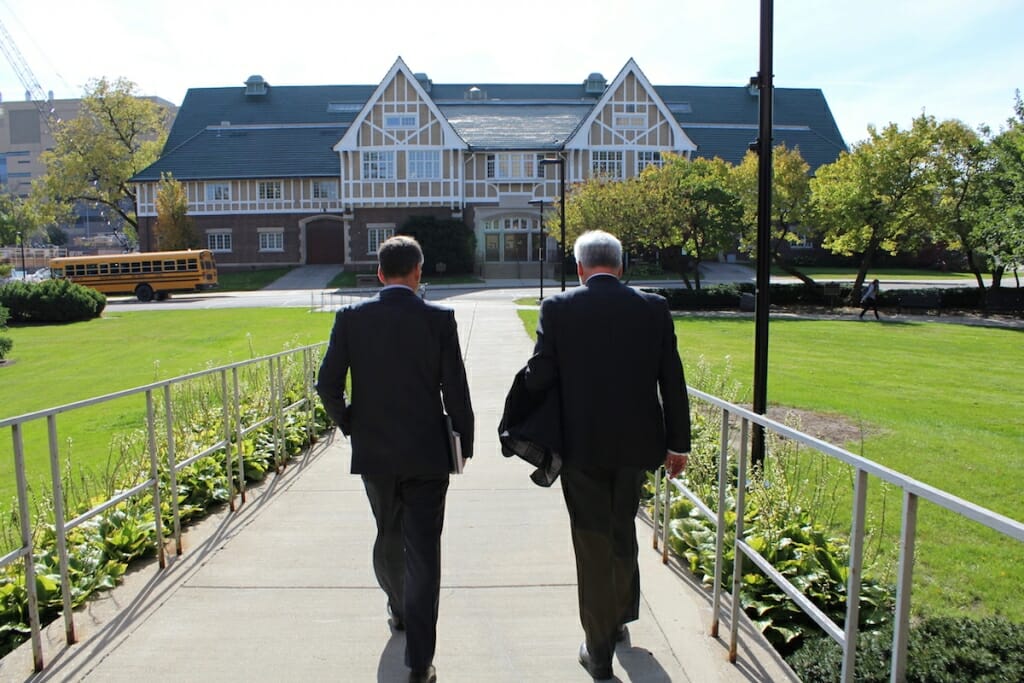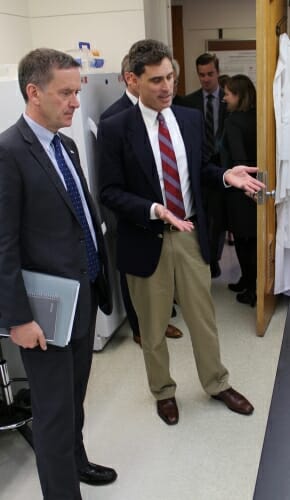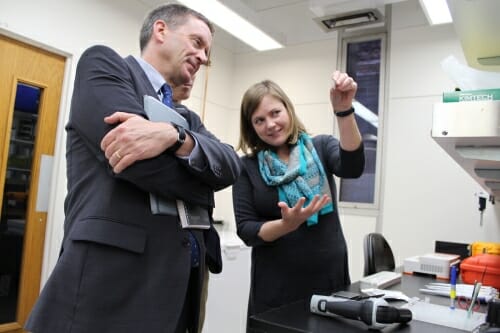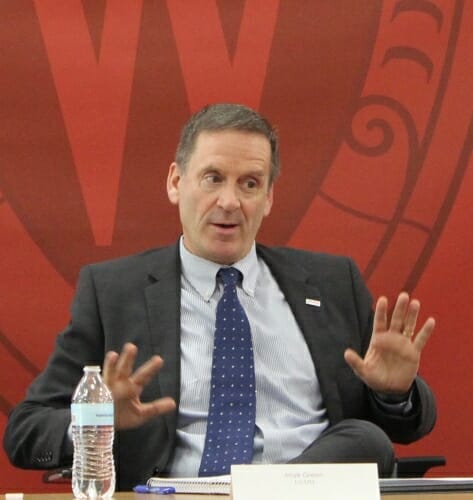Foreign aid leader’s visit focuses on UW partnership opportunities

“I’m a Badger,” says Mark Green (left), walking toward the Stock Pavilion, “and when I look at everything this fantastic university is doing, I say, the sky is the limit.” Photo by Rodee Schneider
As a Wisconsin native and UW alumnus, USAID Administrator Mark Green understands better than most the breadth of expertise that exists on the University of Wisconsin–Madison campus. He saw it as a law student, as a state representative and later as a member of congress representing Wisconsin’s 8th district.

Green visits the lab of Tony Goldberg, an epidemiology professor in the School of Veterinary Medicine whose research focuses on global health and infectious disease. Photo by Rodee Schneider
On Oct. 18, Green’s knowledge of UW–Madison’s academic range brought him to campus for a discussion about potential partnership opportunities between USAID and the university. Green has held the top post at USAID — the United States’ foreign aid and development — since 2017.
“I can’t think of any USAID interests where UW doesn’t have a subject matter expert,” said Green. “The issues where we have questions, you have answers.”
The agency frequently works with top U.S. universities on issues related to hunger and agriculture, economic development, education, global health and more.
Green, who also served as the U.S. ambassador to Tanzania from 2007 to 2009, spent the day on campus meeting with faculty, university administrators and researchers. His morning included a discussion with a group of campus leaders working on international issues, a visit with Chancellor Rebecca Blank, and a trip to the laboratory of Tony Goldberg in the School of Veterinary Medicine to learn about global health and international studies in infectious disease.

PhD student Leah Owens, who is doing research in Goldberg’s lab on molecular diagnostics of wildlife disease, shows Green components of their “lab in a box,” which is designed as a mobile field lab. Photo by Rodee Schneider
For USAID, the visit represents a broader effort to expand its partner base and tap into universities’ regional and technical knowledge and research expertise.
For UW–Madison, the meeting offered a chance to explore new opportunities for mutually beneficial collaborations with USAID, potentially extending the reach and impact of work already occurring on campus.
“We have a long history of research related to USAID interests,” said Nancy Kendall, an associate professor of educational policy studies, who was part of a committee exploring opportunities for partnership with USAID. “We want to see the Wisconsin Idea shared with the world.”

Green’s visit included a discussion with a group of campus leaders working on international issues. Photo by Rodee Schneider
While Green’s global work exposes him to some of the planet’s biggest challenges, including hunger, natural disaster and political turmoil, given what he’s seen from university partners, he’s hopeful for the future.
“One of the reasons I’m really optimistic is your students. They’re coming up with designs and innovation we never considered,” said Green.
“I’m a Badger, and when I look at everything this fantastic university is doing, I say, the sky is the limit.”
